Be sure to visit Daily Independent for more information.
Kept home during the early days of the COVID pandemic for their safety, kids are facing a new need.
Trends show that kids are trying to make up social and emotional shortcomings fueled by isolation during lockdown.
In its 2021 State of Mental Health in America report, Mental Health America noted that youth between the ages of 11 and 17 were more likely than any other age group to experience moderate to severe symptoms of anxiety and depression. More locally, child abuse calls in Arizona are up 10% compared to this time last year, according to the Arizona Department of Child Safety. The agency reported more than 22,000 cases of child abuse and neglect from January to June 2021, resulting in over 14,000 placements into out of-home care. “In my personal and professional opinion, (kindergarten through first-grade students) probably have the most challenges coming up in the next four to five years,” said Eric Watkins, branch director at the Swift Kids Branch of Boys & Girls Clubs of the Valley, located at 6420 W. Maryland Ave., in Glendale. Watkins has served at the Swift branch for five years, which includes before and after the pandemic.
“The older kids — teens — their two years of missing out were some of those key teens transitional periods: first dances at the school, the football games; those larger socialization events, as well as ‘hey let’s go hang out at the mall.’” To approach this issue, Boys & Girls Clubs of the Valley, partnering with Terros Health, will provide behavioral health interventions and social-emotional learning programs to alleviate stress among youth in local Clubs. There are almost 22,000 Club members across the Valley as of June of this year, 46% of whom live below the poverty level, according to the organization. The new program, “Whole Child Approach,” is made possible through a funding collaboration between the Arizona Department of Education and three Arizona-based private foundations — The Bob & Renee Parsons Foundation, the Diane & Bruce Halle Foundation, and Virginia G. Piper Charitable Trust.
The Swift branch is among the first to participate in the three-year pilot program, which hopes to expand to 10 total Clubs by the end of 2023 and, eventually, to all 30 Clubs. Behavioral health technicians and therapists will be available to the branches to help alleviate social and emotional stress among children and teens disproportionately impacted by COVID. Additional emphasis will be placed on those under the supervision of the Arizona Department of Child Safety and families experiencing, or at risk of, homelessness.

